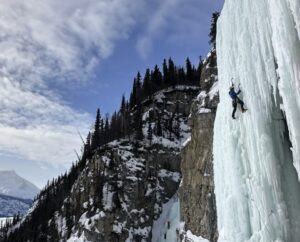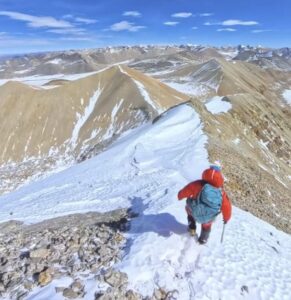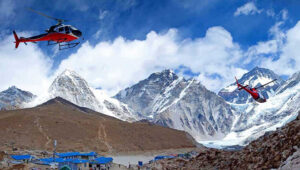The UK’s Mount Everest Foundation is opening its grant program for climbing and scientific expeditions to Nepali citizens. It is their way to commemorate the 70th anniversary of the first ascent of Mount Everest in 1953. It also aims to correct what it diplomatically calls “a longstanding anomaly.”
As we wrote yesterday, a new generation of Nepalese guides are starting to use their off time to pursue their own climbing projects. However, most of them are still limited by lack of funds and the short periods when they are not working. This may help.
How it began
Sir John Hunt, expedition leader of the 1953 Everest climb, established the Mount Everest Foundation (MEF) two years after Edmund Hillary and Tenzing Norgay Sherpa stepped on the top of the world for the first time. Hunt’s later lectures and the film The Conquest of Everest won international praise and raised £100,000. With it, Hunt decided to start a foundation to encourage mountain exploration.
Since then, the MEF has funded over 2,000 expeditions, especially technically difficult climbs in remote and difficult locations. It has also aided scientists with mountain-related research, from high-altitude medicine to glaciology and climate change. However, only British and New Zealand nationals could apply.

Nepalese and Western Climbers on the 1953 Everest expedition. Photo: Mount Everest Foundation
Now, the MEF has admitted that this eligibility restriction was not fair, given that the success of their expedition depended on Nepalis.
When, how, how much?
Nepalese citizens can apply from the beginning of 2024. Deadlines are January 31 for expeditions taking place after mid-April of that current year, and September 30 for those beginning after mid-November of the same year and before the end of the following year.
The amount of funding varies with the expedition’s objective, the size of the team, and whether they qualify for supplemental grants, such as the Alison Chadwick Memorial Fund for female mountaineers. Generally, however, it ranges from £1,000 ($1,275) to £5,500 (US $7,000) per expedition, the MEF told ExplorersWeb.
The judging committee will likely opt for exploratory expeditions, first ascents, or major new routes on high or remote mountains in light style. Check the application instructions and forms here.
Environmental impact
Expeditions will also have to comply with the Code of Practice for expeditions established by the Foundation last August. According to this, expeditions must address their environmental impact during all phases of the expedition, as well as their social and cultural effect.

Humla, Western Nepal. Photo: Rebecca Coles
“Expeditions must demonstrate how they have reduced their environmental impact and offset unavoidable travel,” the MEF told ExplorersWeb. “We require that they pay local workers fairly and directly and…avoid the use of fixed protection whenever possible, climbing in alpine or capsule style.”
More details on who the MEF funds are available here.
For scientific expeditions, the MEF will screen applications in collaboration with Kathmandu University.

Paul Ramsden on the ‘Phantom Line’ on Jugal Spire. Photo: Tim Collins
In 2023, the MEF gave more than $89,000 to 20 expeditions. Funded teams included the duo of Paul Ramsden and Tim Miller. Their new Phantom Line route on Jugal Spire earned them a Piolet d’Or this year.






